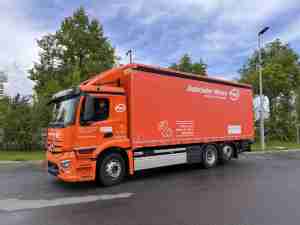A year of innovation ahead in the supply chain and logistics industry
posted by AJOT | Jan 05 2015 at 05:55 PM | Logistics
2015 will see an increased focus on innovation by supply chain and logistics companies as the pace of change in the industry accelerates. This is according to Prof. John Manners-Bell, CEO of leading research company Ti. These innovations will range from those affecting particular sector niches and logistics functions to those which have the power to transform the entire industry.
Structural change has occurred in the industry when the needs of manufacturers and retailers have coincided with those of the logistics supply side. The two most notable examples in the past have been out-sourcing and globalisation which transformed the relationship between manufacturers, retailers and their logistics providers from the 1980s onwards. Manners-Bell now believes that the technological solutions which are being developed have the potential to bring about an even greater level of systemic change.
E-commerce, of course, has created opportunities for logistics providers, as retailers develop multi-channel distribution strategies. However it is recognised that the home delivery model is flawed both in terms of the economics for the last mile delivery companies (especially so-called ‘free’ delivery options) and for the customer in terms of failed-deliveries. This has led to a plethora of new solutions being developed. For example, some of the technological innovations presently being rolled out allow the customer to take control of where and when the package will be delivered, ultimately increasing delivery rates and improving customer experience.
However even more deep-reaching consequences of technological innovation are likely – the so-called ‘uber-ization’ of the logistics industry. Uber is a solution developed for the taxi industry which matches the massive under-utilisation of vehicle capacity with passenger demand by using the computing power contained in smart phones. Of course under-utilized capacity is no more evident than in the freight industry and it is only a matter of time before similar disruptive technology creates a more efficient market, potentially transforming the way in which the transport industry is structured and does business.
Ken Lyon, Ti’s Chief Innovation Adviser, commented: ‘The logistics industry has always adapted well to innovation that benefits customers and lowers costs. The difference with many of these emerging innovations is the speed at which new incumbents can enter a market and disrupt existing business models. This is because the cost of doing so is now very low due to inexpensive hardware and ubiquitous access to the internet’.
Manners-Bell concluded, ‘In 2015 Ti will be focusing its efforts on the analysis of innovation in the supply chain and logistics industry. There is a real appetite for insight into the way new products and solutions will impact on established business models and companies realise that unless they stay ahead of the curve their market position will be under increasing threat.’









